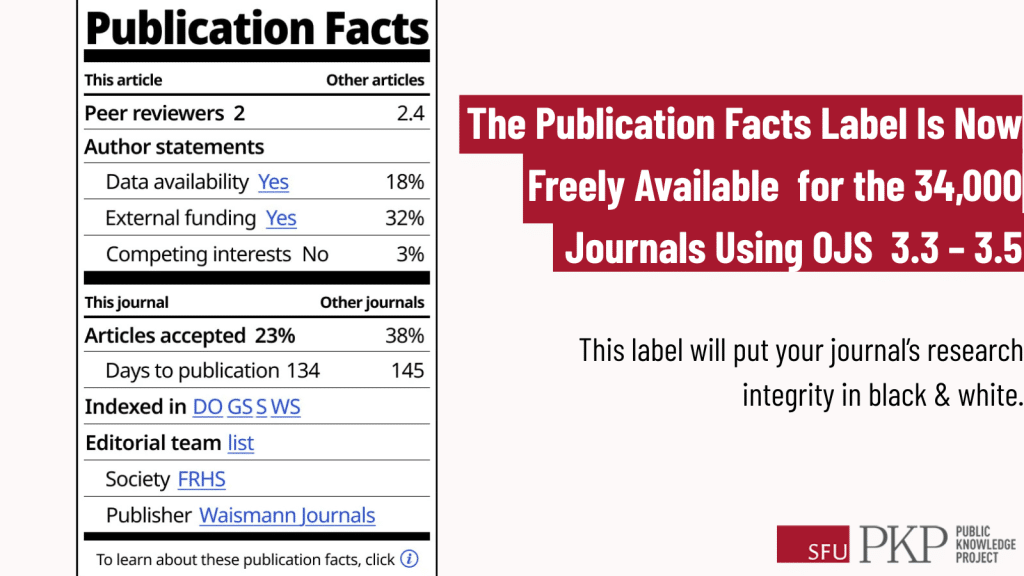
The Publication Facts Label Is Now Freely Available for the 34,000 Journals Using OJS (V. 3.3 – 3.5)
There’s no better way for journal publishers and editors to address today’s questions of research integrity than to implement PKP’s Publication Facts Label (PFL) in their instance of OJS (versions 3.3 – 3.5). The open source PFL Plugin automatically generates a label in the appropriate language for every research article, which will appear as a drop-down on the article’s landing page.
The PFL has been developed in response to rising concerns over research integrity, given the threats posed by the growth of paper mills, reviewer cabals, data manipulation, or predatory publishers. This contributes to declining public confidence in research and scientists.
At this point, the publishing industry is developing a variety of fraud-detection strategies, often involving AI, to deter and weed out fraudulent research before publication. The Public Knowledge Project believes that this behind-the-scenes work needs to be complemented by a clear public statement on research articles that provides the details on the care that has gone into ensuring research is a reliable information source.
Employing decades of platform expertise, PKP has devised and tested a Publication Facts Label (PFL) for use with PKP’s Open Journal Systems. Clicking the Publication Facts dropdown on an article’s landing page reveals data on ten scholarly publishing standards drawn directly from the publishing platform. PKP is also exploring with other platform developers and publishers the potential for an industry-wide implementation of the PFL.
The PFL builds on the Nutrition Facts Label’s success in presenting factual data that has been shown to influence consumer thinking. The PFL has been developed in consultation with editors, researchers, science journalists, high school students, and their families. In Nature’s Question of the Week, 73% of 3,785 readers thought it “would be useful” (Apr 19 2024, scroll down). At an OASPA publishers’ presentation, 72 out of 73 attendees thought it would be “a useful addition to journals” (Sep 24, 2024). In a 130-journal PFL trial, of the 201 readers who opened it, “public” readers (21%) ranked its usefulness highest at 4.4 / 5 (Jun 25, 2025).
To implement the PFL in your journal, ask whomever is hosting your journals (the Systems Admin) to follow these directions, which include instructions for editors to set the start date, indexes, and make other modifications.
John Willinsky willinsk@stanford.edu
Public Knowledge Project Founder
